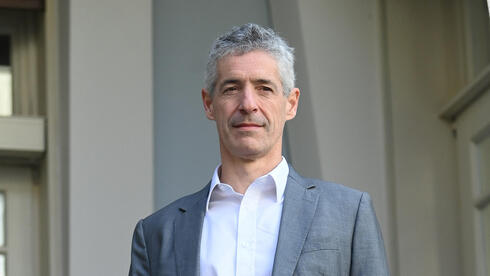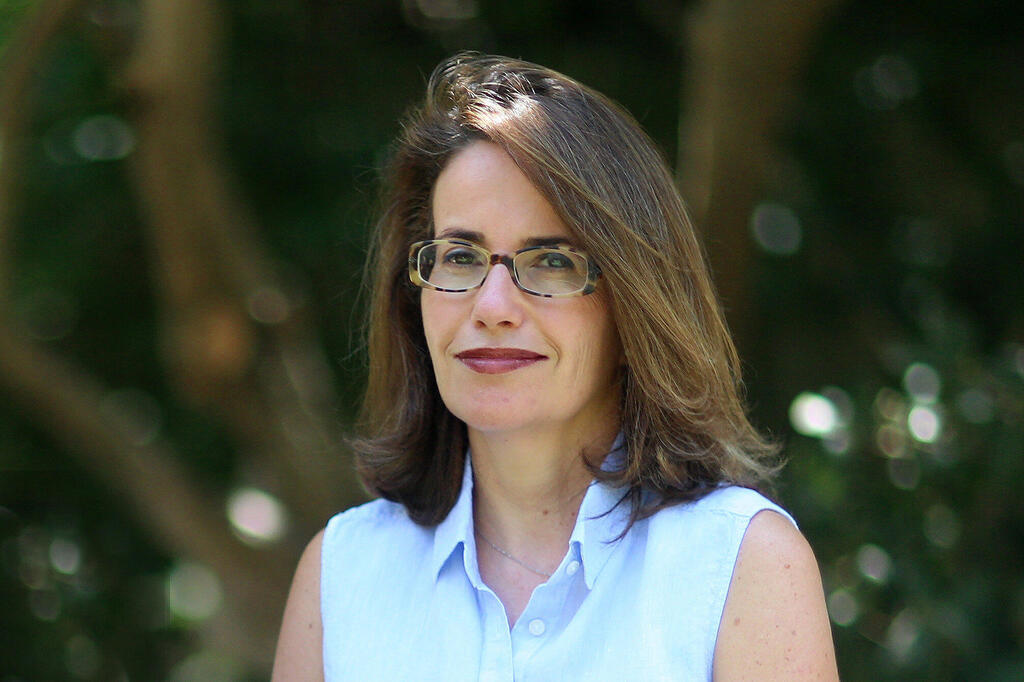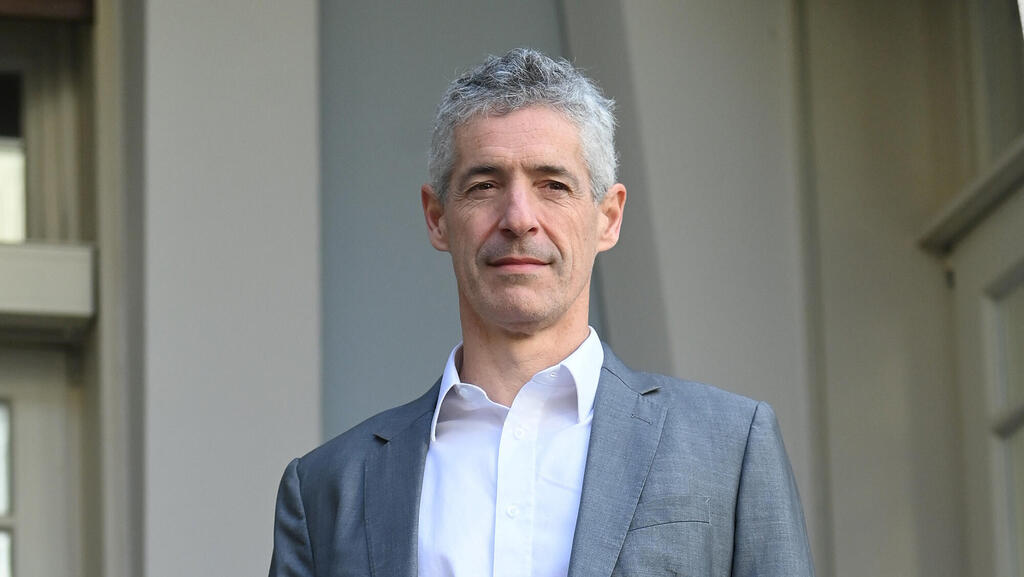
Hamilton Lane co-CEO: "Now is the best time to invest in Israel"
"The only real essential market for venture capital, apart from the USA, is in Israel, and those who do not invest in it should be ashamed," added Juan Delgado-Moreira, co-CEO of the alternative investment management giant
"Every time I land in Israel, I am asked at the border control if this is my first time in Israel, and I usually answer 'it's the first time this month,'" laughs Juan Delgado-Moreira. "Even now, this is already the second time I've been in Israel since October 7, after I was already here in November.” Visiting Israel these days is not at all trivial for Delgado-Moreira, who is co-CEO of Hamilton Lane.
Although it is an unfamiliar name to most Israelis, our pension managers know it very well - it is the body that manages for them, or advises them, in everything related to the distribution of our pension savings to private investment channels. That is, anything that is not stocks, mutual funds, ETFs or bonds. Hamilton Lane, which advises on the management of $900 billion worldwide, is one of the oldest players in the local market, even if it is a bit of a strange bird.
Although as far as Delgado-Moreira is concerned Hamilton Lane is on the same list as the likes of Blackstone, KKR, Apollo or Bain Capital, it is a little different in its roots and therefore also in the nature of its activities. Its roots, and also its foundation, lie in advising pension funds in the management of their private investments, and less in the purchase of large real assets itself. As an expert in the management of pension systems, Hamilton Lane advised the Bachar Committee, almost 20 years ago, on the optimal ways to build and manage the long-term savings that were being split from the banking system. Following the Bachar reform, Hamilton Lane began operating in Israel in 2004, and Delgado-Moreira’s first visit here was in 2005. Now that he is coming here in the middle of a war - while sharing the CEO chair with Erik Hirsch, after the two replaced Mario Giannini who had been in office since 2001 - this is an event with a high risk profile.
"Obviously, questions arose. People asked me, 'Now that you're co-CEO, are you sure your insurance allows you to travel to Israel?'" Delgado-Moreira says in an exclusive interview with Calcalist, and his first since being appointed to the coveted position at the company he joined 19 years ago.
Delgado-Moreira is an intriguing mix between the American and European dreams. He was born in Spain, came to study in the U.S. as part of a Fulbright scholarship, returned to Spain, did a doctorate and from there moved to London to work at Citi, in the Baring investment company, from which he was recruited by Hamilton Lane, which was looking to expand outside the U.S.
From 2019 until his appointment as joint CEO, Delgado-Moreira served as the vice chairman of Hamilton Lane. There is still a hint of a Spanish accent when he talks, while his appearance completely passes for a full-fledged Israeli capital market executive. He also likes to spice up the conversation with Hebrew words, as a kind of amusing proof of his frequent presence here. He built his vocabulary mainly from meetings with the investment managers of the institutional bodies in Israel, for whom it is estimated that he manages several billion dollars - which, of course, is still not enough for him.
"In the Western world, not only in the U.S., but also in countries more similar to Israel, such as Australia, the rate of investment in non-tradable channels already exceeds 20% and is moving towards 30%, while in your country it is still 10%. However, this is tremendous progress, and Israel should be proud of its pension management market, which went from zero 20 years ago to a sophisticated and very sophisticated market of $70 billion today," he says. "This is related to Israeli characteristics such as competitiveness, and the fact that everyone knows everyone, and no one wants to be left behind."
Hamilton Lane also invests in Israel from the money it receives from institutional bodies around the world, including local VC funds Pitango, Greenfield, New Era, and vGames. Hamilton Lane also likes to invest in the Israeli investment funds FIMI and Fortissimo. Hamilton Lane has invested hundreds of millions of dollars here over the years, both in these funds and directly in high-tech companies, such as the software company monday.com, the sports media company Minute Media or the residential community management company Venn, alongside industrial companies including Netafim and Ashot Ashkelon.
"We are currently active in Israel and invest just as before. We have already closed investments in two local venture capital funds since the outbreak of the war, which means that we passed the investment committee and were asked all the questions about the situation in Israel and the war. One of the things that is most difficult to explain to our American clients is that CEOs of companies we invested in were drafted into the reserves, such as Or Bokobza, the CEO of Venn," says Delgado-Moreira. Among the funds he has now invested in is Next October - an initiative to invest in 1,400 new start-ups, founded by Izhar Shay, after his son Yaron was killed in the battles along the Gaza border on October 7.
Why come to Israel now? After all, today you can do everything online.
"Because we need to explain the situation in Israel, which from afar looks much worse. Nobody is coming from abroad now, and we have to show that everything is working as usual. I myself send pictures from here to the employees of the company," explains Delgado-Moreira, who despite his appointment decided to stay with his family in Hong Kong, where he has been living for years after leading the growth of Hamilton Lane in Asia. Contrary to the mainstream, the headquarters of Hamilton Lane remained in Philadelphia, where the company was founded in 1991. "I am not offended by the questions about Israel, I understand them, but what is important is that the capital is there - and it is also available to Israeli companies and funds.”
Will such questions and fears make it difficult for Israeli funds that have already raised money to call for it for actual investments in the near future?
"I get asked a lot about the difficulty of capital calls, but as a foreign entity that invests here, there is, in my opinion, no reason for concern. What will be more difficult for the Israeli entities is raising new money. The problem is not only in Israel, but also in the world. There is a combination of macro events here from several directions. All the private valuations are being adjusted these days, and the perception is that the new money being raised now will go to down rounds, that is, raising at a lower valuation. But in our opinion, right now is the best time to invest, and in the two venture capital funds we invested in we were the largest investors, accounting for half of the funding until now. As always, people stop investing when prices fall, so fund managers hear most of the time 'come back to us in six months'. But this is exactly the time to increase positions, reduce the average price. If you are a serious investment company, see when you are active. It doesn't just happen when the sun shines."
To what extent does the downgrading of Israel's credit rating affect the ability of local funds and companies to raise funds from foreign investors?
"It does not have an effect, in my opinion, and we are not limited in terms of ratings in our investments. In our view, this is not a material event. We know that we have made money in the Israeli market, we are making money in the Israeli market and we will continue to make money in the Israeli market. The capital that is invested with us wants what is in Israel - a large pool of talent that produces technology and innovation. I know that for you it's obvious, this ecosystem of Startup Nation, and you think it's not a big deal, because it's part of your life, but it is a big deal, and it doesn't exist in other places."
They say that Europe is catching up and will soon overtake us, that everyone has learned what needs to be done to nurture this startup nation, and meanwhile here there are fewer and fewer startups every year.
"No. I'm here to tell you based on information we collect, and we are very serious about collecting information and making data-based decisions, that your venture capital industry is bigger than Europe. You are still second only to Silicon Valley. There were a few years in which China grew a lot in this area, but due to the geopolitical trends it is less relevant. That is why the only real essential market for venture capital, apart from the USA, is in Israel, and those who do not invest in it should be ashamed," insists Delgado-Moreira. "Every global investor must be here. I am amazed by people who tell me 'I am leaving Israel'. The markets in Berlin, London and Paris are still tiny. Each of them can fit into one building in Herzliya Pituach."
But the current Israeli government discouraged investors even before the war. Many of them expressed concerns because of the judicial reform.
"You have a built-in advantage, because only in this country the same people who do high-tech also serve in the army. Look at Singapore, they are trying to copy you. In other countries it is the government that invests in research and development, whereas in Israel everything comes from private enterprise and not from the government. The other advantage of Israel is that you do not have a focus in a certain field, because there is no local market here. The companies are immediately built for the international market, and thus the lack of a local market becomes an advantage. No one will be able to duplicate it."
What else interests you in Israel? There are quite a few interesting financial assets for sale here, such as the Phoenix insurance agencies.
"We checked, but it doesn't interest us. There have been many financial entities for sale here over the years, for example the Psagot Investment House, which made a good exit. But in the end it's not high-tech, but a distribution business, and that's not what's special in Israel."
But in the end these are the big deals. After all, it is not easy for a huge body like Hamilton Lane to find an investment that will "move the needle" in a small economy like Israel. What is your smallest check?
"We are very flexible, and there are many interesting companies that do not need a lot of money. We can also invest $2 million . We do not have a problem of being too big for a market, otherwise we would not invest in Israel. This is a problem for entities like Blackstone or even Sequoia, which couldn't make deals here the way it wanted."
Hamilton Lane currently employs only 10 people in Israel, all of them women, under the management of Limor Beker, who was also the one who brought the company to Israel 20 years ago. The team works with the institutional bodies, while the investments are managed from branches abroad, mainly from London. These days, Hamilton Lane is recruiting a series of new funds, including an evergreen fund and a secondary fund, for the purchase of holdings from venture capital funds that need liquidity.
2 View gallery


Limor Beker, Managing Director at Hamilton Lane and the head of its Israel office.
(Photo: Tomerico)
As part of the evergreen fund, Delgado-Moreira intends to address a new market segment in Israel for the first time - that of wealth management. Hamilton Lane has recently been gearing up in this area, and even recruited a manager for wealth activities in Latin America a few weeks ago. The wealth management division, which currently manages $6 billion in the company, has become the fastest growing part of Hamilton Lane with a 70% jump in assets over the past year.
"Wealth management in Israel lags behind the rest of the world, and hasn't really started yet. We want to educate the market here," Delgado-Moreira says and qualifies that the final details of the start of operations in Israel are not yet finalized and emphasizes that it is not related to the war.
Many entities, starting with a giant like UBS to Edmond de Rothschild, who have been operating in the local wealth management market for years and manage quite a few assets, will disagree with you, not to mention get angry.
"I mean that it didn't start with regard to private investments," Delgado-Moreira says. "Most players in the field of wealth management currently invest in the public market, but we are experts in the private markets. In the past, such investments were illiquid and this alienated many. The challenge was to allow exposure to private investments, for people who need some level of liquidity, and this has been resolved in recent years. As a result, there has already been a huge leap outside of Israel in traditional wealth management, which has gone into investing in the private market, and now they are putting 10% of the clients' portfolios in the private segment."
Delgado-Moreira explains that one of Hamilton Lane's funds is Evergreen, that is, without a specific fundraising event and without a predetermined end date. It has been running since 2019 and currently has $5 billion under management. The fund is partially liquid, with the possibility of withdrawing up to 5% of the investment on a quarterly basis. To date, the fund, which evaluates its assets on a monthly basis, has achieved an annual return of 15%.
How does your activity in Israel, which you even mentioned in the investor call this month, affect your relationships with customers in Arab countries?
"Since we are not from Wall Street but from Philadelphia, we did not go to these guys. We are very big among the sovereign funds in Asia, but not in the Gulf countries. That's why we are here, while quite a few entities that were here have disappeared - and this is related to the Qatari money they manage. In the Gulf countries they also do not like private investments, but prefer public investments or the purchase of strategic assets, where the investment is not necessarily for the returns. But in the new world in the Middle East, which I believe will be very different for the better after the war, there will be many changes in this arena as well. I am sure that the new Middle East will cause everyone to move forward."














